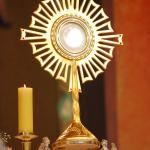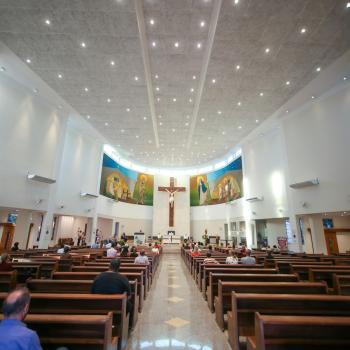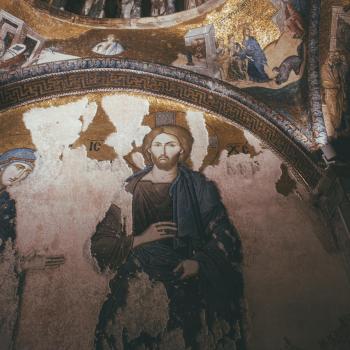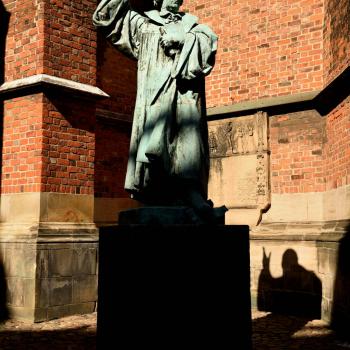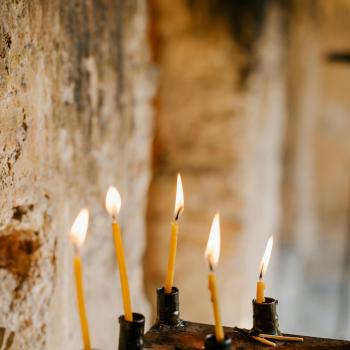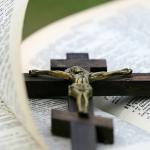What makes something moral? Does God decide good and evil arbitrarily?
The movie John Q poses a fascinating moral dilemma. The movie begins with a Little League baseball game, where suddenly a boy collapses. His family rushes him to the hospital and soon they find out that he needs a heart transplant to have any chance at survival. The news becomes even more devastating when they find out the cost of the surgery and that their insurance will not cover it. It seems unthinkable to the father that his son is going to die while the technology that could save his life exists. So, he takes those in the hospital hostage and tries to force them to remove his own heart and give it to his son.
While his desire to save his son springs from generosity, there is no doubt that within the framework of Catholic moral theology he would be wrong to commit suicide, even to give his own heart as a donation to his son. Many people will have different emotional responses to this, so the question of the origin of morality comes to the forefront.
“Akedah”
The story of the sacrifice of Isaac by Abraham raises a similar question. At first glance, it looks like God is asking Abraham to murder his son as a religious sacrifice. Everything in our being recoils at the prospect of doing this. It is similar to the Euthyphro dilemma posed in Plato’s Dialogue of the same name. “Does God command this particular action because it is morally right, or is it morally right because God commands it?” (Internet Encyclopedia of Philosophy, “Divine Command Theory”). I remember debating the Sacrifice of Isaac ad nauseam during my studies in theology, though this debate at its core was really about the foundation of morality.
Where Does Goodness Come From?
God commands actions because they are good, but this does not mean that there is a standard of goodness independent of God (cf. Karlo Broussard, “Why God Can’t Command Us To Do Evil”). We have to be aware of the existence of human nature and thus of natural goods to understand the basis of morality that is always going to be in accordance with God’s commands. It might seem that the command to Abraham is the great exception to this rule, but this raises another question: is it morally justifiable because God orders it?
God as the Author of Life
Ultimately, God is the author of life, so we could make the argument that he can demand from us what has been gifted to us. However, there is a lot more going on in this passage.
The Akedah (ah-kay-DAH), or binding of Isaac, is one of the most powerful narratives in the Hebrew Bible. For nearly 2,000 years, however, it has been read somewhat differently by Jews and Christians. It is even portrayed differently in the pictures they make. For most Christians, the Hebrew word akedah is unfamiliar; more often than not, they will refer to the episode as the sacrifice of Isaac rather than the binding of Isaac. (Robin Jensen, “The Binding or Sacrifice of Isaac”)

Abraham as a Man of Faith
Abraham is the paradigm of what it means to be a man of faith, so his response to the test laid down by God is important. I have always found it important, however, to note that it was a test. God sent the angel to stay the hand of Abraham, and in the end Isaac remained unharmed. Jews blow the shofar to commemorate Jewish New Year. The shofar is a ram’s horn that is blown at Rosh Hashanah to celebrate the New Year and remember the Binding of Isaac.
So, why then do we have the reading of the Binding of Isaac during Lent? In a phrase, because we are preparing to celebrate the Sacrifice of Jesus in his Passion and death. Here, there will be no ram caught in a thicket to take his place. No one will “stay the hand of God” to permit him to continue living. The sacrifice of Isaac, which did not take place as expected, nevertheless prefigures the sacrifice of Christ, which was fulfilled and won for us the gift of redemption. God does not command evil, but he did allow his Son to suffer evil for our sake, so that we could enter the Kingdom of Heaven.
Transfiguration
The story of the Transfiguration feels out of place as well next to the story of the Binding of Isaac which we hear in the first reading. Now, we transition to a story of great joy in the Transfiguration. What is happening? Both of these events prefigure deep mysteries of our faith. While the Binding of Isaac points to the ultimate sacrifice of Christ on the cross, the Transfiguration prefigures his future glory. Seeing the glory of the Lord in the Transfiguration strengthened the faith of the apostles. In the same way, we are called through the Transfiguration to be strengthened in our Lenten sacrifices, knowing that we are walking towards the enjoyment of the glory of the Lord at Easter.
Too often, we look to religion as merely a source of morality, instead of as a way to grow in relationship with God. Spend some time this week praying earnestly to God, allowing him to touch your heart. Of course, this will hopefully affect your moral behavior, but the most important thing is that you are growing closer to Jesus Christ. God does not decide good and evil arbitrarily, but rather commands us to work according to our human nature and what is naturally good for us. We need to believe in him and trust him profoundly, as Abraham did.
Subscribe to the newsletter to never miss an article.



